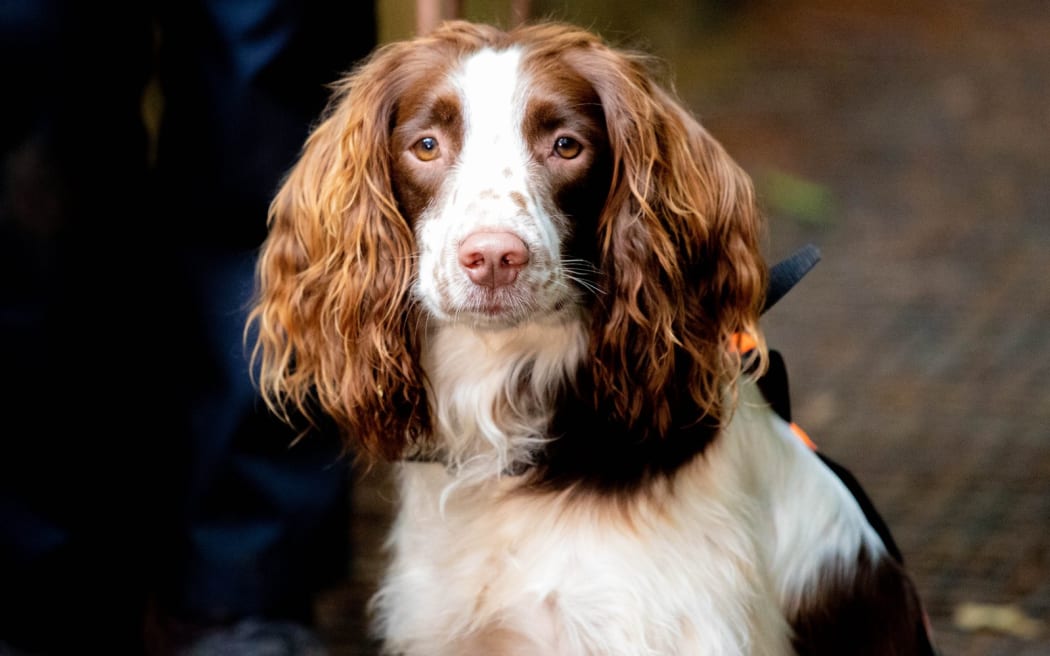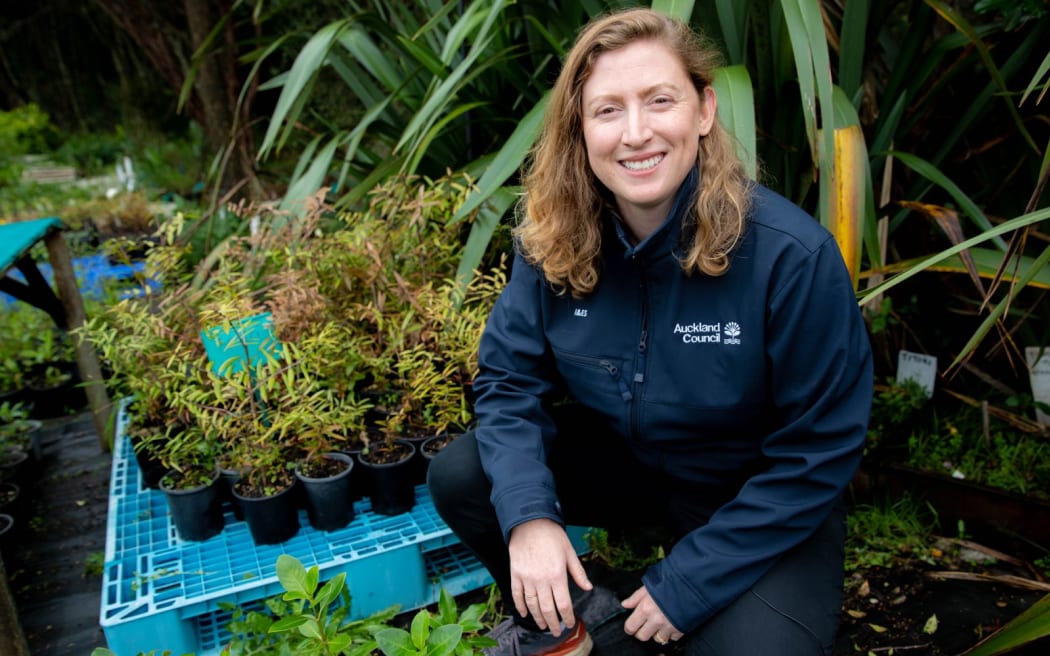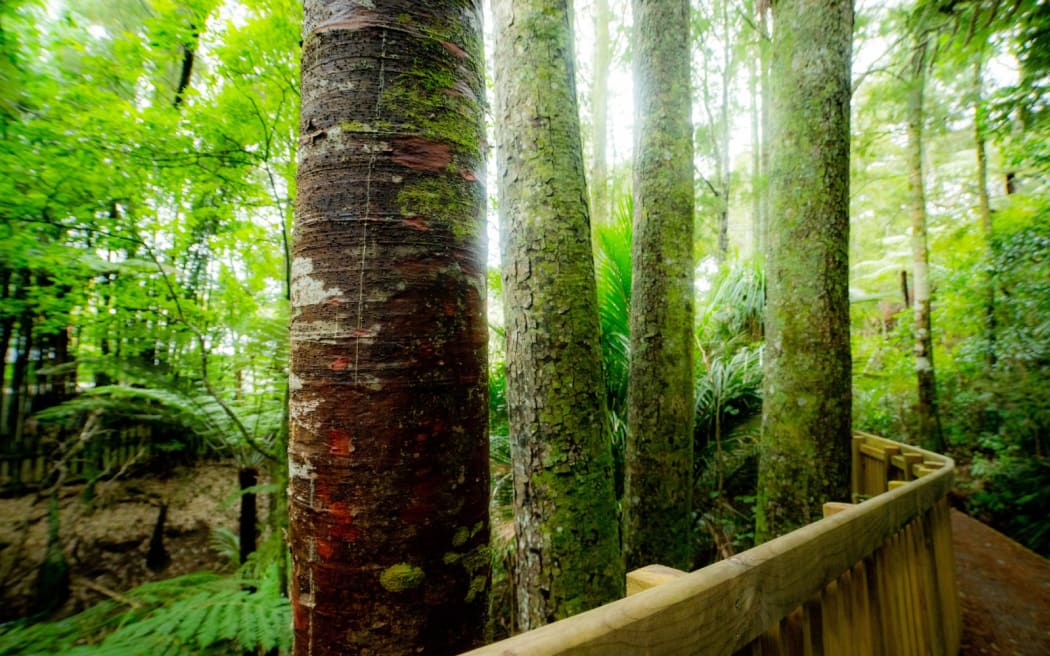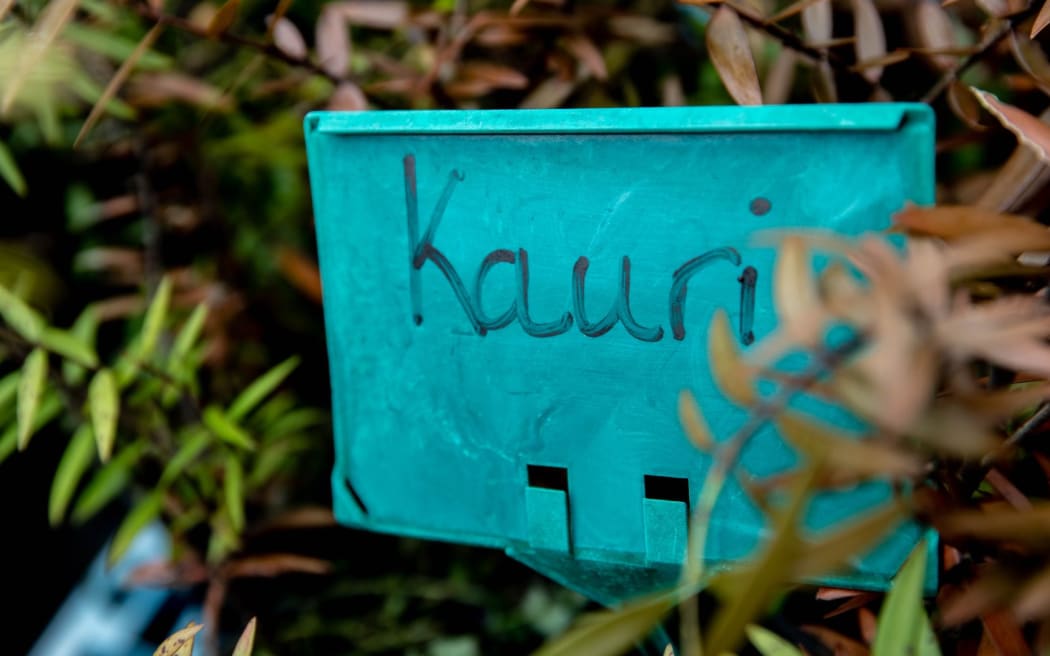
Kauri dieback has no cure, but Marty can sniff it out. Photo: RNZ / MARIKA KHABAZI
Cute and cuddly with a powerful nose, dogs are the latest tool Auckland Council is using in its fight against kauri dieback disease.
After three years of training Pip, Mawhai and Marty have become the first specialist kauri dieback sniffer dogs.
Checkpoint went out on the job with Marty.
Five years ago it was estimated one in five trees in the Waitākere Ranges were infected with kauri dieback disease. Auckland Council plant pathogens advisor Sarah Killick said it is hard to track.
"It's about a 10th of a millimetre big, so you can't see it and it's spread by the movement of soil."
The pathogen infects the roots of the trees, preventing the uptake of water and important nutrients - the tree essentially starves itself and loses its leaves.
There is still no cure. The biggest tool is preventing the spread of the disease in the first place, through ongoing upgrades to tracks limiting the transfer of the pathogen, cleaning stations and of course detection.
That was where Marty and Kayla came in. Marty is one of two English springer spaniels working alongside his mum Pip and jagdterrier Mawhai in the council's team of kauri dieback sniffer dogs.
It has taken three years of intensive training to get the dogs trained to sniff out the disease, grown on oats.
"They're oats that are put in jars and then they're put inside contained areas and so the dogs are directed to sniff each area."
Killick said the dogs had a huge advantage over lab testing because they could scan a wide area quickly.
"Lab testing can take weeks to get those results back, and for a place like a forest, that's fine... but at places like the ports where we might have construction vehicles coming in, they're not going to be able to wait, you know, weeks each time."

Sarah Killick. Photo: RNZ / MARIKA KHABAZI
At Kāipatiki nursery in Birkdale there are more than 70 different species of plants grown to be planted at different restoration projects across Auckland.
Marty sniffs the plants, ensuring they are safe to be sold, especially vital if they were heading to areas like Waiheke or the Hauraki Gulf, which are free of kauri dieback.
Marty lies down if he detects one of the plants. One potentially infected Kahikatea plant was detected on Friday, which would be sent off for lab testing and destroyed.
Kaipātiki Nursery is one of many learning to grow and sell kauri plants safely. Nursery manager Derek Craig said at the moment, kauri were not planted in many local parks and forests.
"We're down to 4 percent of the previous population. It is a species on the edge of extinction, and that is the hard fact.
"We should be growing as many as we can and getting them back out. Our small effort is only small, but it's still an effort... could be what saves them."

Kauri dieback has no cure. Photo: RNZ / MARIKA KHABAZI
Having the dogs around to check over plants was a game changer, but Craig admitted it was taking some getting used to.
"Well, leapy happy dog on top of my other plants was a bit nerve-wracking - yeah, it's just something we have to work with."

Kauri dieback has no cure. Photo: RNZ / MARIKA KHABAZI
Marty's handler Kayla Wrench has been living and working with Marty for a year now. At just two years old, Marty was the youngest dog and full of energy. Wrench said he had come a long way.
"It's taken a little while to get him used to doing that because obviously the world is a big and exciting place, but he's getting really accurate."
Time at home was much quieter, to give Marty time to recuperate for his day job.


